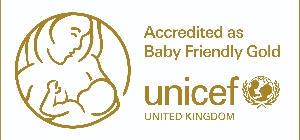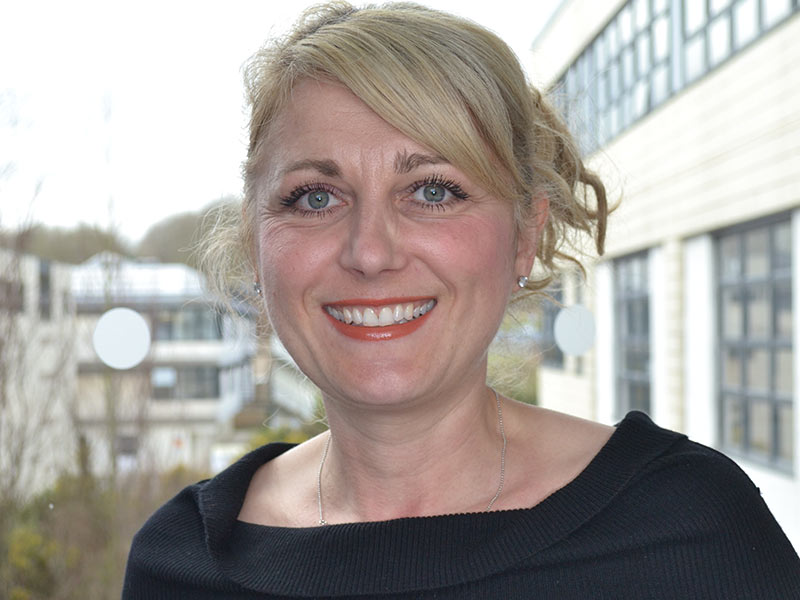View semester dates

MMid Midwifery
Learn to lead change and deliver excellence.
Year of entry: 2026/27
View semester dates
Accelerate your career and positively impact midwifery and maternity care.
Applications for this course are closed to UK (home) and overseas applicants for 2026/27. Applications for 2027/28 will open in September.
Our aim is to educate midwifery post graduates who will positively impact women, birthing people, families and communities early in their professional lives, thereafter being at the forefront of innovative professional change.
We run a unique programme, designed to accelerate your career and enable you to positively impact midwifery and maternity care. You will become a skilled, knowledgeable and compassionate midwife, providing comprehensive care for women, birthing people, newborn infants and families.
Your practice will be characterised by advanced scholarship, critical thinking skills and your quest for excellence. You will display an autonomous professional identity, underpinned by comprehensive interpersonal skills and fluency in building and sustaining relationships with multi agency care teams.
Through varied and stimulating academic and practice learning modules you will gain the knowledge, skills and experience to provide safe, universal and advanced midwifery care. In your final masters year you will explore content at the forefront of the midwifery discipline which will enable you to demonstrate fluent masters level clinical practice. You will critically explore contemporary midwifery practice and advanced midwifery leadership, and lead a service improvement project.
We keep our cohorts small, meaning you’ll have all the peer and academic support you need to progress through your course.
Accreditation
After completing this degree, you'll be eligible to register with the Nursing and Midwifery Council, the professional regulatory body for nurses and midwives in the UK.
Our current midwifery courses are fully-accredited with the UNICEF Baby Friendly Initiative with Sustainability (Gold Award). The award sets standards for facilitating effective parent-baby relationships and choices regarding infant feeding.


Studying midwifery is an exciting journey and York provides you with that work life balance and support that you need! If you’re considering it- go for it!
Course content
Right from the start of the course you’ll begin to provide universal, safe, respectful, empowering and equitable midwifery care to women, birthing people, their families and newborn infants. You’ll work with a variety of people across a range of community and hospital settings during your practice learning, giving you the opportunity to observe and participate in midwifery practices with different philosophies.
The course content of the MMid will enable you to demonstrate mastery as an accountable, autonomous, skilled, knowledgeable and compassionate midwife and role model excellence and vision when communicating with others. The course is divided equally into theory and practice. You’ll work with our practice partners across the region throughout your course, experiencing a wide range of
localities and practice settings.
You’ll be supported and supervised by clinical midwives, known as Practice Assessors and Practice Supervisors, in all of your placements. Placements encompass hospital, midwifery led unit and community settings. Two clinical electives will further strengthen your practice learning: a second-year national and/or international opportunity which recognises midwifery as part of a global profession, and a fourth-year UK-based placement with a focus on advanced midwifery leadership.
Modules during your study will reflect the six domains set out by the Nursing and Midwifery Council:
- Being an accountable, autonomous, professional midwife
- Safe and effective midwifery care: promoting and providing continuity of care and carer
- Universal care for all women, birthing people and newborn infants
- Additional care for women, birthing people and newborn infants with complications
- Promoting excellence: the midwife as a colleague, scholar and leader
- The midwife as skilled practitioner
Year 1
At the beginning of your course, you’ll study what to expect when delivering universal midwifery care during pregnancy, labour, birth and the postnatal period. We focus on making sure you know how to provide high quality, evidence-based universal care for all women, birthing people and families.
Your core modules will form the foundation of your midwifery knowledge. You'll explore topics in the classroom and apply your learning in practice.
Core modules
- Universal Midwifery Care: Antenatal (20 credits)
- Universal Midwifery Care: Intrapartum (20 credits)
- Universal Midwifery Care: Postnatal (20 credits)
- Establishing Professional Self in Midwifery (20 credits)
- Midwifery Practice Learning 1 (40 credits)
Academic integrity module
In addition to the above you will also need to complete our online Academic Integrity module.
Year 2
In Year 2, you’ll study how to facilitate maternal and neonatal health where additional care needs are required by women, birthing people and families. You’ll also learn more about the importance of evidence-based practice, reflective practice and the role of the midwife in public health. You'll continue to refine your skills in practice. At the end of Year 2 there will also be the opportunity to undertake a national or international elective placement.
Core modules
- Advancing Universal Midwifery Care (20 credits)
- Evidence-based Midwifery Care (20 credits)
- Complexities in Maternity Care (20 credits)
- Developing Professional Self in Midwifery (20 credits)
- Midwifery Practice Learning 2 (40 credits)
Year 3
You’ll focus on preparing to work as a qualified midwife throughout your final year. You’ll look at how to deal with emergency situations and consider service improvement and leadership skills.
Your core modules will continue to build and consolidate your knowledge and skills in both theory and practice. You will also investigate a chosen midwifery topic in depth in an extended piece of writing.
Core modules
- Emergencies in Maternity Care (20 credits)
- Autonomous Midwifery: Leadership and Practice (20 credits)
- Strengthening Professional Self in Midwifery (20 credits)
- Leading and Managing Change in Midwifery (20 credits)
- Midwifery Practice Learning 3 (40 credits)
Year 4
In your final year you will explore content at the forefront of the midwifery discipline which will enable you to demonstrate fluent masters level clinical practice. You will critically explore contemporary midwifery practice and advanced midwifery leadership, and lead a service improvement project. The MMid programme will engage, inspire and challenge you.
Core modules
- Critiquing Contemporary Midwifery Practice (20 credits)
- Challenging Professional Self in Midwifery (20 credits)
- Advancing Midwifery Leadership (20 credits)
- Transforming Midwifery Practice (40 credits)
- Midwifery Practice Learning 4 (20 credits)
Our modules may change to reflect the latest academic thinking and expertise of our staff, and in line with Department/School academic planning.
Learning outcomes
Every course at York has been designed to provide clear and ambitious learning outcomes. These learning outcomes give you an understanding of what you will be able to do at the end of the course. We develop each course by designing modules that grow your abilities towards the learning outcomes and help you to explain what you can offer to employers. Find out more about our approach to teaching and learning.
Learning outcomes for this course
- Advance and critique safe, respectful, empowering and equitable midwifery care for women, birthing people, their families and newborn infants, using knowledge at the forefront of your discipline to meet universal and additional needs.
- Demonstrate self direction when leading universal and additional care, supporting individualised physical, psychological, social, cultural and spiritual safety
- Exercise initiative when providing safe and effective universal and additional care which promotes continuity of care and carer.
- Respond to complex issues and situations in midwifery care systematically and creatively, making sound judgments where good quality evidence may be lacking.
- Demonstrate mastery as an accountable, autonomous, skilled, knowledgeable and compassionate midwife.
- Role model excellence and vision when communicating with others, including professional peers and specialist/non specialist audiences.
- Excel in leadership, acting as a confident role model when building and sustaining relationships with women, birthing people and families, and interdisciplinary/multiagency teams.
- Demonstrate originality and independent scholarship when undertaking professional development, to promote continuous improvement in midwifery practice and maternity care.
Fees and funding
The fees and funding information here is for students starting in the 2026/27 academic year.
If you take a year abroad or year in industry you'll pay a reduced rate of fees for that year.
Annual tuition fees
| UK (home) | International and EU |
|---|---|
| £9,535 (TBC) | £32,350 |
The UK government has announced its intention to increase tuition fees from £9,535 to £9,790 for the 2026/27 academic year. We expect this to apply to new UK (home) undergraduate students starting their studies in September 2026.
UK (home) or international fees?
The level of fee that you will be asked to pay depends on whether you're classed as a UK (home) or international student. Check your fee status.
Fees for subsequent years
- UK (home) fees may increase within the government fee cap in subsequent academic years. We will notify you of any increase as soon as we can.
- International fees are subject to increase in subsequent years in line with the prevailing Consumer Price Index (CPI) inflation rate (up to a maximum of 10%).
More information
For more information about tuition fees, any reduced fees for study abroad and work placement years, scholarships, tuition fee loans, maintenance loans and living costs see undergraduate fees and funding.
Additional costs
You'll have to meet the costs of uniform replacement or missed occupational health appointments. You'll also have to pay for Professional Association Fees (Indemnity) which is covered in the Royal College of Midwives (RCM) or Unison Student Membership which is approximately £30.
You may also have to meet costs related to your elective placement, depending on what you choose to do.
Uniform provision, Occupational Health Screening, and Disclosure and Barring Service checks are included in your fees.
Funding
We'll confirm more funding opportunities for students joining us in 2026/27 throughout the year.
- UK government loans
- UK scholarships and bursaries
- International scholarships
- Country-specific funding
- US loans
Eligible midwifery students receive a payment of at least £5,000 a year (gov.uk) to support their academic studies. This is on top of the standard government support for tuition fees and living costs and doesn't need to be paid back.
Scholarship for International Nursing & Midwifery Students
The Department of Health Sciences will provide eligible ‘International’ Midwifery & Nursing students with a £1,000 annual scholarship to help with associated travel costs as they are not eligible for assistance through the NHS Learning Support Fund. As this is a non-competitive scholarship (i.e. do not need to apply), eligible students will be notified during the new semester of their award.
York, Oxford, Cambridge, Imperial
Just four UK universities are rated Gold for teaching and top ten for research* in the latest national assessment exercises.
* Awarded joint 10th in the Times Higher Education ranking of the Research Excellence Framework 2021.
Teaching and assessment
Teaching format
You'll mainly work with your cohort in seminars and lectures. There's also an opportunity to work with students in other years in theory and practice.
Timetabled activities
In your first year, you can expect:
| Theory sessions | 40 hours per week Theory weeks only |
|---|---|
| Placement | 40 hours per week Practice weeks only |
| Supervision | 1 hour per semester |
These figures are representative of a typical week. Your contact hours will vary throughout the year due to your module choices, non-compulsory classes, exam periods and changes to scheduled activities.
Outside your timetabled hours, you'll study independently. This may include preparation for classes, follow-up work, wider reading, practice completion of assessment tasks, or revision.
In the UK, full-time students are expected to spend 1,200 hours a year learning. That's about 40 hours of classes and independent study each week during semesters. Everyone learns at a different rate, so the number of hours you spend on independent study will be different to other students on your course.
About our campus
Our beautiful green campus offers a student-friendly setting in which to live and study, within easy reach of the action in the city centre. It's easy to get around - everything is within walking or pedalling distance, or you can use the fast and frequent bus service. Take a campus tour.
Assessment and feedback
Careers and skills
You'll leave York with a thorough understanding of how to succeed as a registered midwifery practitioner, and a range of transferable skills that will help you no matter what career path you decide to follow.
Entry requirements
If you haven't met our English language requirements
You may be eligible for one of our pre-sessional English language courses. These courses will provide you with the level of English needed to meet the conditions of your offer.
The length of course you need to take depends on your current English language test scores and how much you need to improve to reach our English language requirements.
After you've accepted your offer to study at York, we'll confirm which pre-sessional course you should apply to via You@York.
Next steps
Contact us
Get in touch if you have any questions

Department
Related courses
Midwifery
Nursing
Discover York






